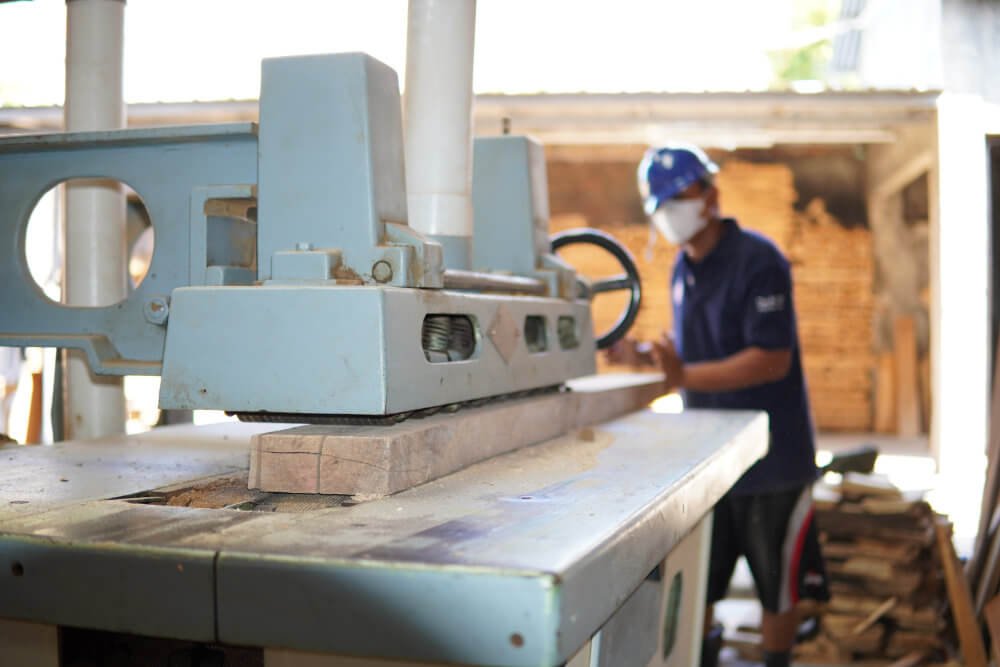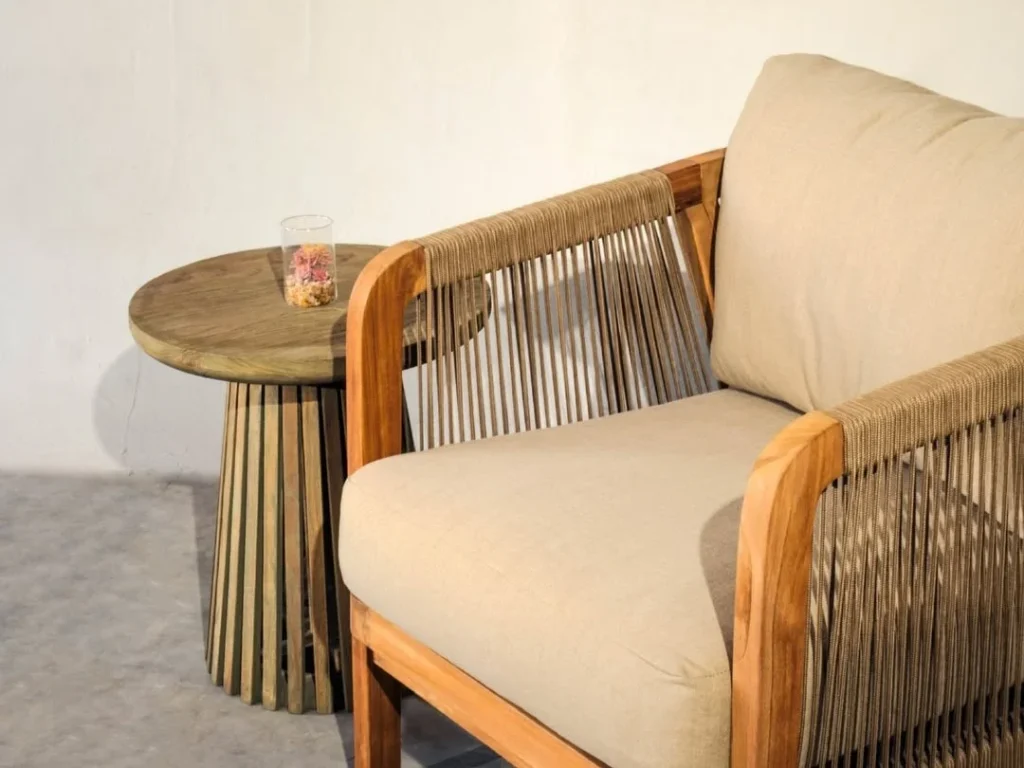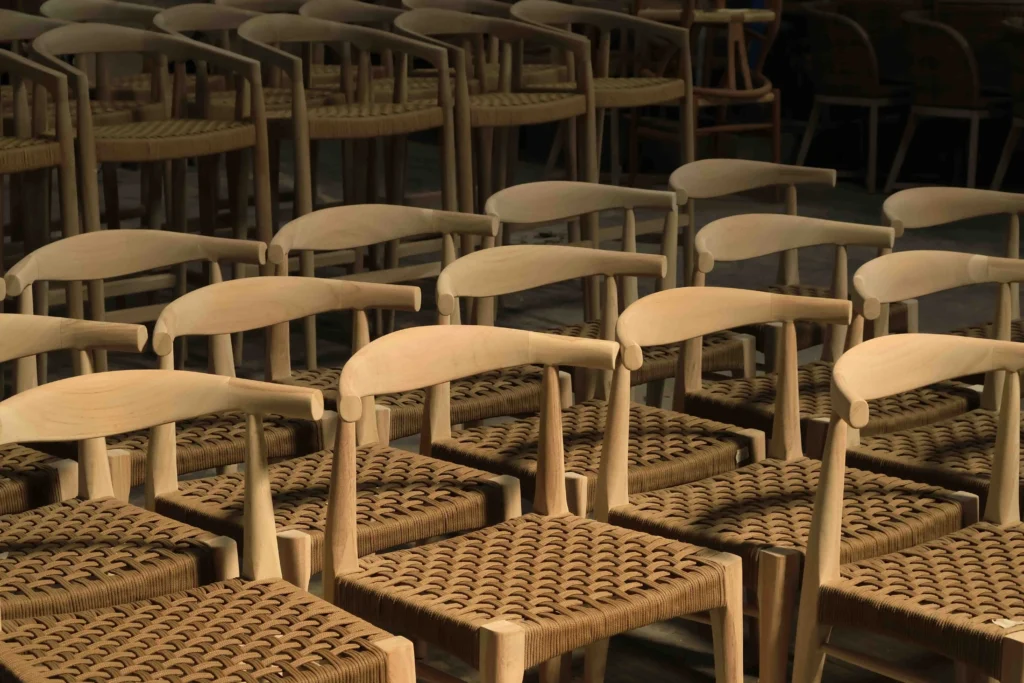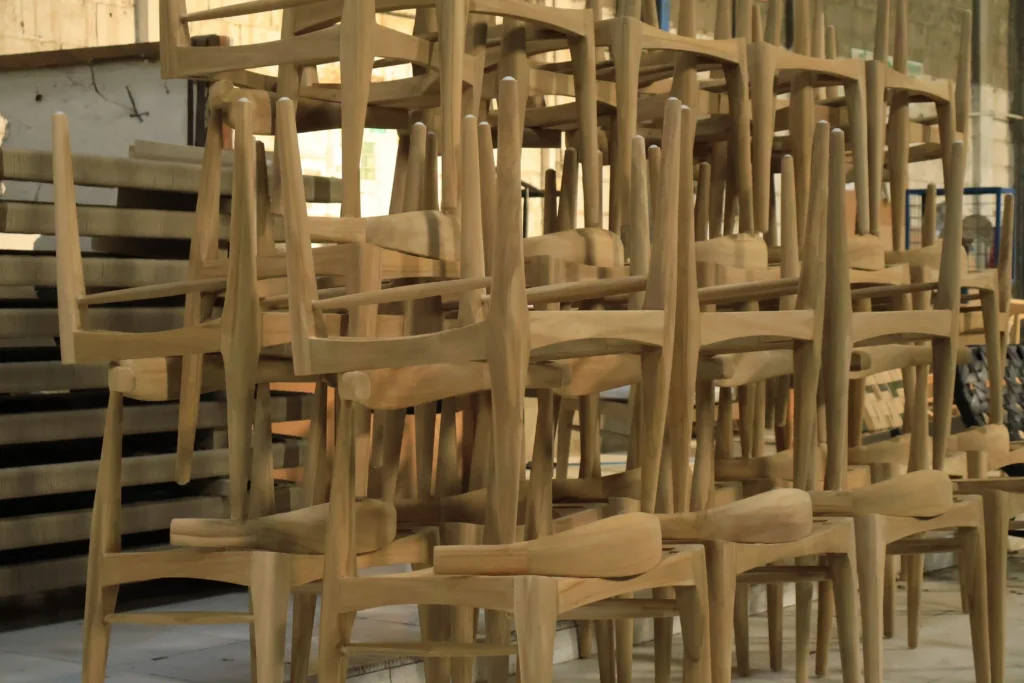Finding a reliable Indonesian furniture supplier isn’t just about price. It's about control, quality, transparency, and building a partnership that works long-term. If you're sourcing for your retail brand, hotel project, or wholesale distribution, picking the wrong type of supplier could delay production, cost you more, and frustrate your customers. We’ve observed how buyers engage with different supplier types, including trading companies, small workshops, and direct manufacturers. We’ve also fixed mistakes buyers made when they picked the wrong one. In this article, we’ll break down each supplier type and help you decide what fits your business.
Who is this article for?
- Importers, wholesalers, retailers, and project-based buyers
- Interior designers and sourcing agents looking to work with an Indonesian furniture manufacturer
What will you get from this guide?
- Know the difference between supplier types
- Avoid hidden costs and delivery delays
- Choose a partner who can scale with your needs
What Most Buyers Don’t Realize
In July, a buyer from the US visited us and shared their frustration about the recent furniture fair. "It’s so hard to tell who’s a real manufacturer," they said. "Everyone claims they are one, even if they’re just a trading company." They also mentioned how working with trading companies caused delays. If there was an issue, instead of solving it in a day, it took two or more, because communication had to go through a middleman. Pricing was another pain point: "It just wasn’t competitive," they admitted. That’s why understanding who you’re dealing with matters. Here’s what you need to know.
The 3 Types of Indonesian Furniture Suppliers
1. Trading Companies
Who they are: Middlemen who buy from multiple local producers, package it as one offer, and sell it to you.
Why some buyers start with furniture trading companies: who buy from multiple local producers, package it as one offer, and sell it to you.
Why people choose them:
- They speak your language.
- They offer a variety from different sources.
- They’re easier to work with in the early phase.
But here’s the downside:
- They usually mark up prices by 20-25% for their operational expenses.
- You don’t talk to the maker directly.
- You have no control over factory quality or lead time.
✅ Best for: Buyers who need quick sampling or don’t plan long-term.
🚫 Not ideal for: Growing brands, retail chains, or any business that needs repeat orders and consistency.
2. Local Workshops
Who they are: Small production houses (10–30 workers) focused on handcrafted items.
Why workshops are sometimes preferred:
- Very low prices.
- Artisan-quality finishes for rustic or custom looks.
- You may get unique designs.
But watch out for:
- No quality standard, finish, joinery, or even wood treatment may vary.
- They usually don’t handle export documents (SVLK, invoices).
- Often poor communication in English.
- Not scalable beyond a few orders.
✅ Best for: Designers, boutique buyers, or one-time project sourcing.
🚫 Not ideal for: Retail chains or export-focused businesses.
Not all workshops use the same grade or material-if you're comparing teak wood with other options, make sure you understand the durability differences.
3. Direct Furniture Manufacturers

Who they are: Registered Indonesian furniture supplier (like us at MPP Furniture) with in-house teams for each process, from raw material to packing.
Why serious buyers prefer Indonesian furniture manufacturer:
- Transparent pricing (no middleman cut).
- In-house quality control.
- Customization is part of the process (OEM/private label).
- Can handle high volumes and repeat orders.
- Full export service (SVLK, logistics, packaging).
✅ Best for: Wholesalers, importers, retail chains, hotels, and villa projects.
🚫 Not suitable if: You only need a few pieces and want extreme cost-cutting.
Learn more about how to choose the best Indonesian furniture manufacturers for export, especially if you're just starting your sourcing journey.
Table: Quick Comparison
| Feature | Trading Company | Local Workshop | Direct Manufacturer |
| Price | Highest (20% markup) | Lowest | Fair, factory-direct |
| MOQ | Varies, no factory rule | Very low | Clear structure, scalable |
| Customization | Limited, slow to adapt | High, but unstructured | Full OEM-ready |
| Lead Time | Unpredictable | Slow | Predictable, repeatable |
| Quality Control | Limited visibility | No standard | Standardized in-house |
| Export Compliance | Usually yes | Usually no | Full support |
| Communication | Mediated, filtered | Inconsistent | Direct, clear |
| Risk Level | Medium | High | Low |
What Buyers Need to Consider Before Choosing an Indonesian Furniture Supplier
1. Are you scaling or testing?
If you're testing a new product line or need 10-20 pieces, a workshop might work. But if you're building a product category or starting a retail line, go with an Indonesian furniture manufacturer from day one.
2. Do you care about brand control?
Want consistent finishes, packaging, labeling, and reliable reordering? Trading companies can’t guarantee that. Manufacturers will put your brand first.
3. How critical is quality and delivery time?
If your shipment is delayed or doesn’t pass QC, you lose money. That’s more common with traders and workshops. Factories are designed to avoid that.
How We Built MPP Furniture to Avoid Common Buyer Problems
At MPP Furniture, we used to work with traders, but we decided to change how things are done. We offer our OEM and export services, and also:
- Free consultations to help you avoid rookie mistakes.
- In-house production: Kiln-drying, joinery, finishing, packing under one roof.
- OEM/private label: We develop custom designs and branding for clients.
- Quality inspections at each stage.
- Full documentation support: SVLK, HS codes, and export papers.
- Real industry trust: We’re participating in IFEX 2025 to meet global buyers face to face. If you're curious about how we built this business from the ground up, read about our team and company values.
- Global clients: We ship to the US, Australia, Spain, and South Africa.
Our Experience: What Happens When Buyers Pick the Wrong Supplier
We helped a US buyer who previously worked with a middleman. When they found us, they were struggling with:
- Unclear material quality.
- Miscommunication on product specs.
- Inconsistent finishes across shipments.
Now, with us as their direct manufacturer:
- They get standardized QC photos.
- Same team handles sampling and production.
- Their reorder rate is up, and returns are down.
Final Checklist Before You Choose
Ask your potential supplier:
- Who owns the production? (Them or someone else?)
- Can I get photos/videos of your factory?
- Do you provide clear samples and QC processes?
- Will I have direct contact with the production team?
- What’s your MOQ and lead time?
Use this furniture supplier checklist to make sure you're asking the right questions before placing your first order. If any answer is vague, you’re probably not dealing with a real Indonesian furniture manufacturer.
Final Thoughts
The difference between a smooth import experience and a frustrating one often comes down to supplier type. Avoid relying solely on websites or trade fair claims-ask the right questions and check behind the branding.
For serious buyers, our Indonesian furniture manufacturing company offers the best balance of price, reliability, and control. Use this guide to evaluate your options and avoid costly mistakes.
📩 Let’s talk by Whatsapp for fastest reply. We help importers, retailers, and project buyers find the right solution-no pressure, just good advice.
👉 Download Catalog or Request Sample
👉 See what buyers say on LinkedIn or watch our YouTube Introduction
FAQ
Which country is best for furniture manufacturing?
Indonesia is one of the top choices due to its skilled craftsmanship, teak wood availability, and competitive production costs. Especially for wooden and rattan furniture, Indonesia is a trusted hub for B2B buyers worldwide.
What is the difference between a trading company and a furniture manufacturer in Indonesia?
A trading company acts as a middleman between buyers and local producers. A manufacturer owns the factory and handles production directly, which means better pricing, quality control, and communication.
How do I verify if a supplier is a real manufacturer?
Ask for factory photos, videos, or a virtual tour. Confirm whether they do in-house production and request documentation like SVLK. Direct contact with their production team is also a good sign.
Which supplier type is best for a first-time buyer?
If you’re placing a small test order, a workshop or trader might be easier. But for scaling or branding purposes, it’s better to start with a direct manufacturer who can grow with you.
Why are prices from trading companies higher?
Trading companies add a markup (usually 20-30%) to cover their operations. That’s why buying directly from a manufacturer gives you better cost control and margins.
Is MPP Furniture a factory or a trading company?
We are a direct manufacturer with full in-house production, OEM services, and global shipping experience. You can visit our factory, see the process, and speak directly with our team.

Hi, I’m Salman, founder of MPP Furniture, an Indonesian furniture manufacturer serving global retailers and project-based clients.
I began my career in my family’s export-oriented furniture company, gaining hands-on experience in production, construction, finishing, material performance, and product development. With a clear understanding of how international buyers evaluate furniture quality and reliability, I founded MPP Furniture to deliver export-ready products with consistent standards.
Here, I share insights from the perspective of a furniture manufacturer working directly with production teams on the factory floor, focusing on manufacturing and supplier evaluation.
Connect on LinkedIn




0 Comments